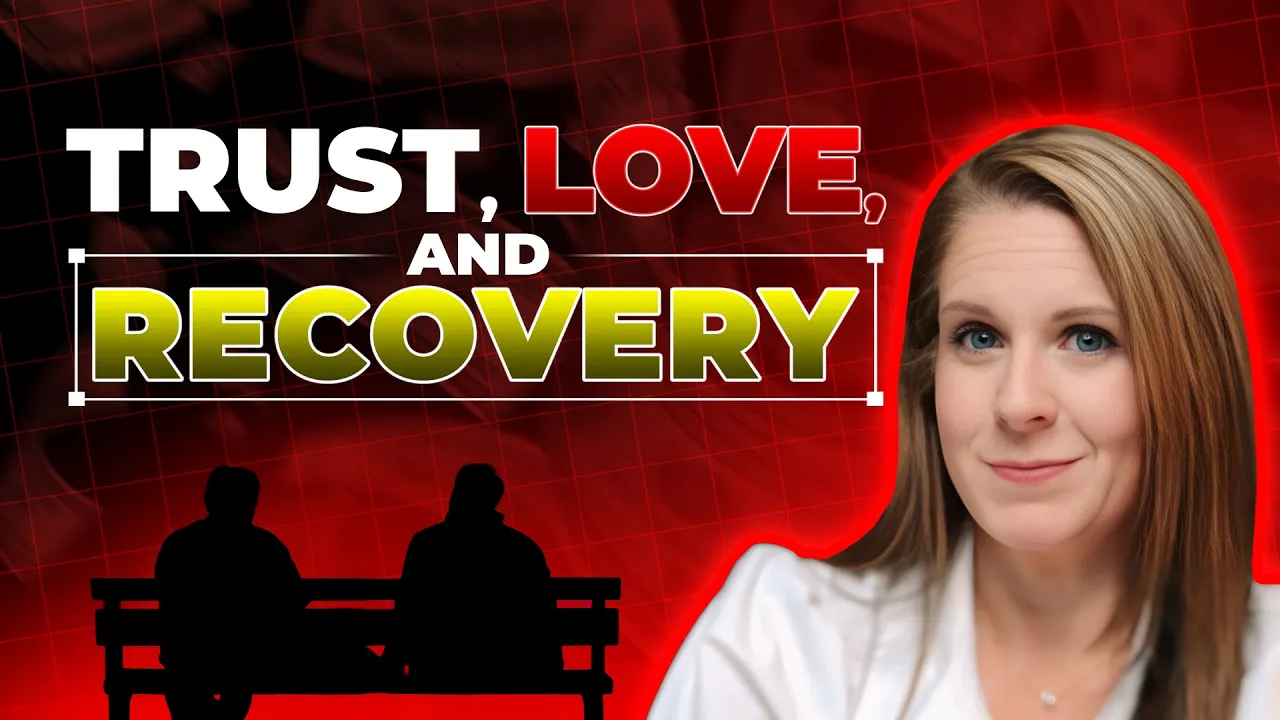The Surprising KEY to Restoring LOVE After Addiction
Rebuilding Intimacy After Addiction: How to Restore Emotional and Physical Connection in Recovery
By Amber Hollingsworth
*Featuring Matt & Sherry Ali from the Intoxicated Podcast
Addiction doesn’t just impact the person struggling—it shakes the foundation of the relationship they’re in. One of the most common challenges couples face in recovery is figuring out how to restore emotional and physical intimacy after addiction has created distance, resentment, and mistrust.
Today, I’m thrilled to share insights from Matt and Sherry Ali, co-hosts of the Intoxicated Podcast, who have walked this path themselves. Matt is in long-term recovery from alcohol use disorder. Together, they’ve faced—and overcome—the unique challenges of rebuilding intimacy after addiction.
They’re here to talk openly about sexual desire discrepancies, emotional safety, and practical steps any couple can take to reconnect.
The Hidden Struggle: Sexual Desire Discrepancy in Recovery
According to Matt and Sherry’s research, 95% of couples in recovery from alcohol use disorder also experience sexual desire discrepancy—meaning one partner wants sex significantly more often than the other.
Sometimes, one partner’s sex drive is completely gone. Other times, intimacy continues but feels forced, tense, or disconnected.
For Matt, sex during active addiction was a source of connection and a dopamine “hit” when alcohol wasn’t involved. For Sherry, intimacy often felt like an obligation—not an expression of love—because the relationship had broken down in other areas.
This mismatch caused arguments, misunderstandings, and deeper disconnection.
Why Addiction Makes Intimacy So Complex
Addiction hijacks the brain’s reward system, narrowing the range of activities that release dopamine. In Matt’s case, that meant alcohol and sex were two of the only things that gave him that feel-good chemical surge.
This biological wiring, combined with relationship trauma from active addiction, meant intimacy often came with baggage:
-
For Matt, it was a way to feel connected.
-
For Sherry, it triggered feelings of resentment or emotional distance.
Breaking this cycle required more than just “trying harder” in the bedroom—it meant healing the relationship from the inside out.
The Four-Part Framework for Rebuilding Intimacy After Addiction
Matt and Sherry’s approach starts with two foundational elements, then builds on them to restore both emotional and physical connection.
1. Resentment Processing
Unresolved resentments are intimacy killers. In recovery, couples must actively address past hurts—not bury them.
This means:
-
Scheduling dedicated times to talk about resentments (they do it weekly).
-
Listening without defensiveness, denial, or downplaying.
-
Acknowledging your partner’s lived experience, even if you don’t remember it the same way.
-
Accepting that some resentments may need to be revisited multiple times.
As Matt puts it: “If your partner keeps bringing up the same hurt, it’s not a sign of dysfunction—it’s a gift. They’re showing you exactly where it hurts so you can be part of the solution.”
2. Emotional Safety
Before intimacy can thrive, couples must create a safe emotional environment where both partners can relax and be themselves.
That means:
-
Speaking with respect, as if you were still dating.
-
Avoiding unnecessary household anxiety (like yelling at the TV or slamming doors).
-
Giving each other full attention during conversations.
-
Keeping interactions calm, even during disagreements.
An unexpected bonus? In emotionally safe households, kids tend to spend more time in shared spaces instead of isolating in their rooms—a sign that the home environment feels stable and welcoming.
3. Non-Sexual Physical Touch
Once emotional safety is in place, you can reintroduce safe, non-sexual touch—hugs, hand-holding, a hand on the shoulder—without the expectation that it will lead to sex.
This builds comfort and connection without pressure. Respect is key here: If touch arouses one partner but not the other, it’s important to honor that boundary rather than push for more.
4. Emotional Intimacy
Finally, emotional intimacy is proactive—it’s about investing in your partner and showing genuine interest in their life.
That might mean:
-
Following up on something they shared yesterday.
-
Reacting calmly to surprises or challenges.
-
Engaging with the kids in meaningful ways (which, as Sherry shares, can actually make her feel closer and more attracted to Matt).
-
Offering vulnerability without unloading every emotional burden at once.
Matt calls this the ABDs: Always Be Dating—approaching your partner with the same curiosity, care, and intentionality you did in the early days.
Why This Matters: The 40% Boost in Sexual Satisfaction
In a 12-month intimacy study with couples in recovery, Matt and Sherry found that emotional intimacy directly correlated with a 40% increase in sexual satisfaction—for both partners, regardless of libido levels.
That’s the payoff for doing the hard work:
-
Processing resentments.
-
Creating emotional safety.
-
Building connection through touch.
-
Proactively engaging in emotional intimacy.
As Sherry sums it up:
"Emotional safety led to emotional intimacy, which—along with education, respect, and understanding—has completely changed our sexual relationship. It was worth the work."
Key Takeaways for Couples in Recovery
-
Stop begging for intimacy—start earning it. Respect, safety, and emotional connection pave the way.
-
Schedule the hard talks. Resentment processing works best when planned and structured.
-
Make your home a safe space. Calm communication lowers anxiety for everyone.
-
Stay in “dating mode.” Always look for ways to bring your partner closer, even in small, everyday moments.
💬 If you’re working on rebuilding your relationship after addiction, what’s been the hardest part for you—emotional safety, physical intimacy, or something else?
🎧 Listen to more from Matt & Sherry on the Intoxicated Podcast for deeper conversations about intimacy, recovery, and relationships.
👇Additional Resources:
💡 Amber's 30-Day Jump Start for Early Recovery
🧠 Strengths-Based Recovery Coaching
🔐 Rapid Relationship Repair Course
📱 24/7 Advice from Amber AI
👨👩👧👦 Consult with a Family Coach


